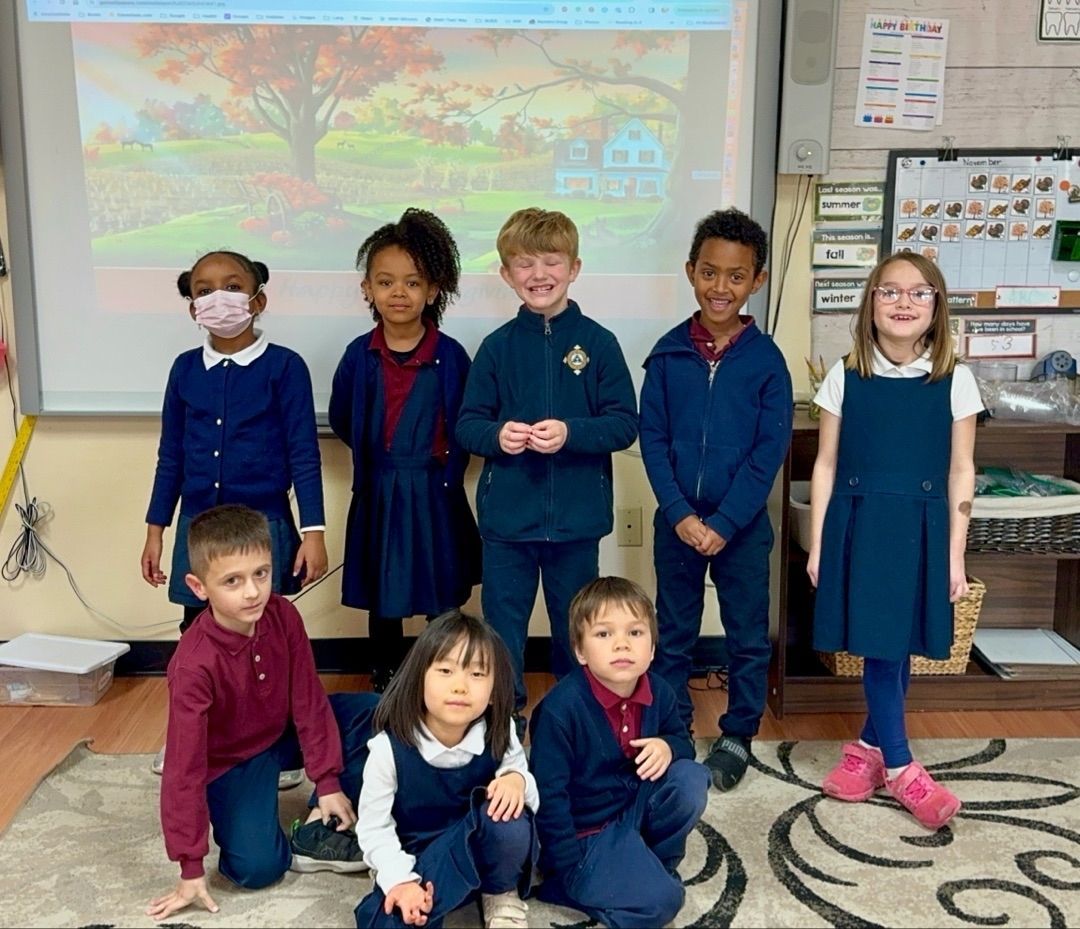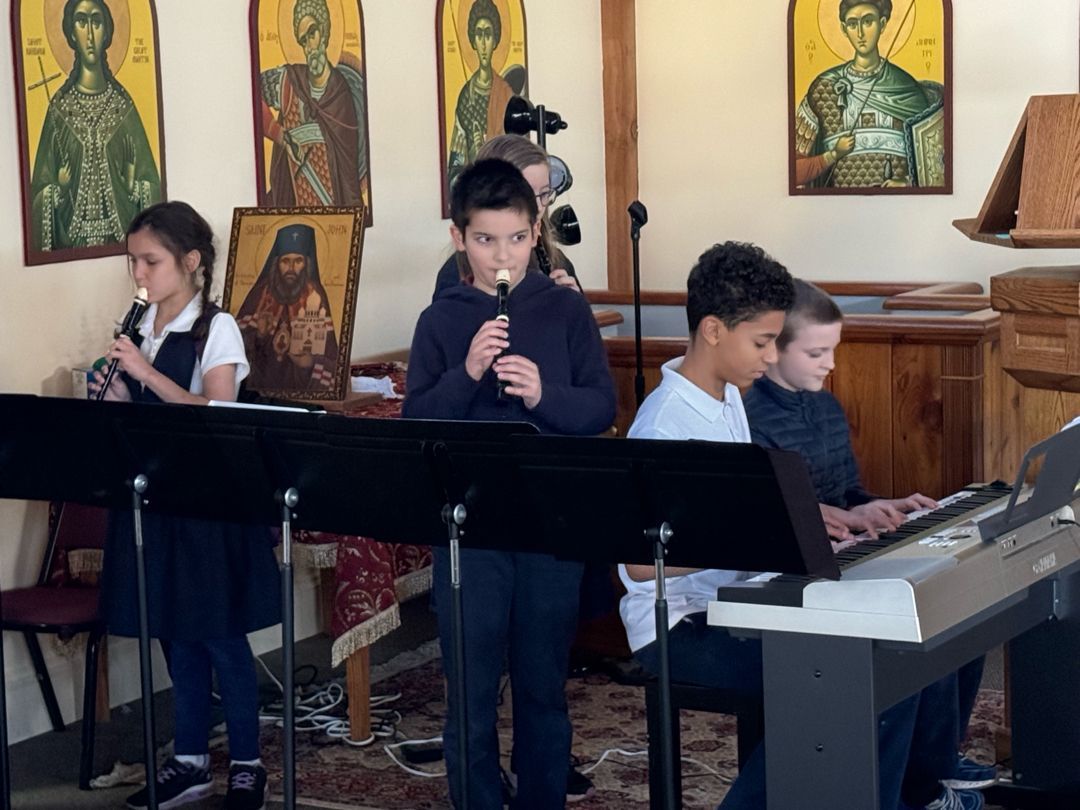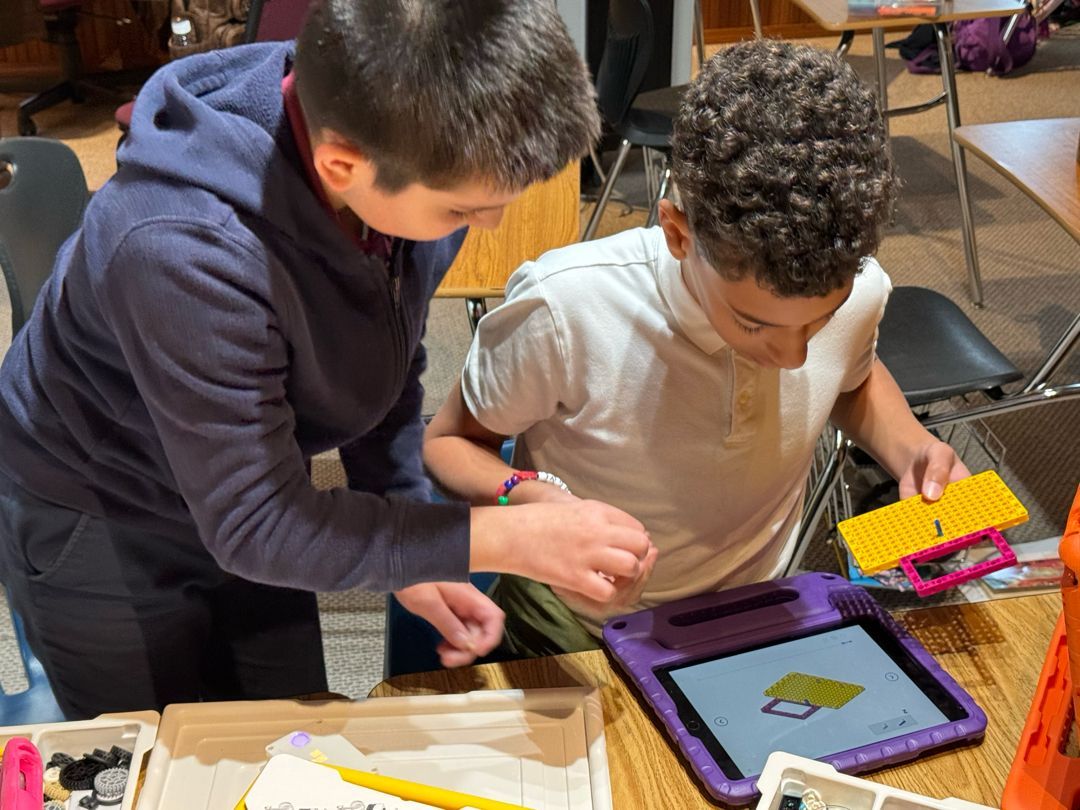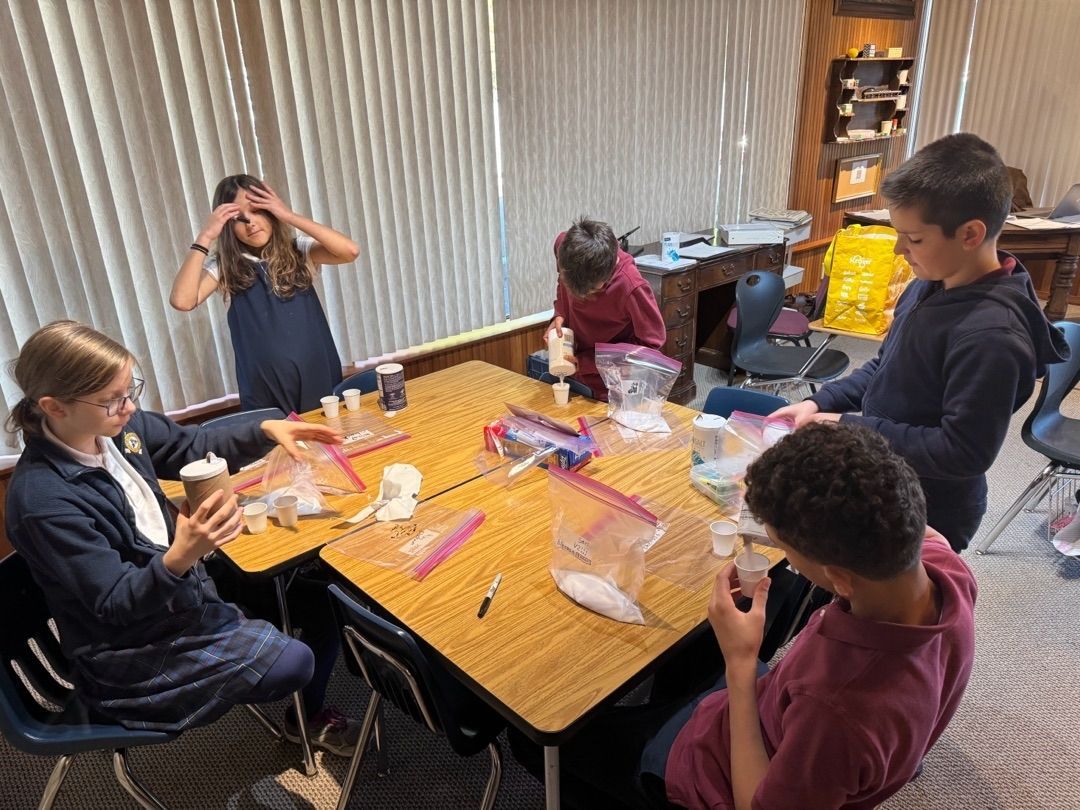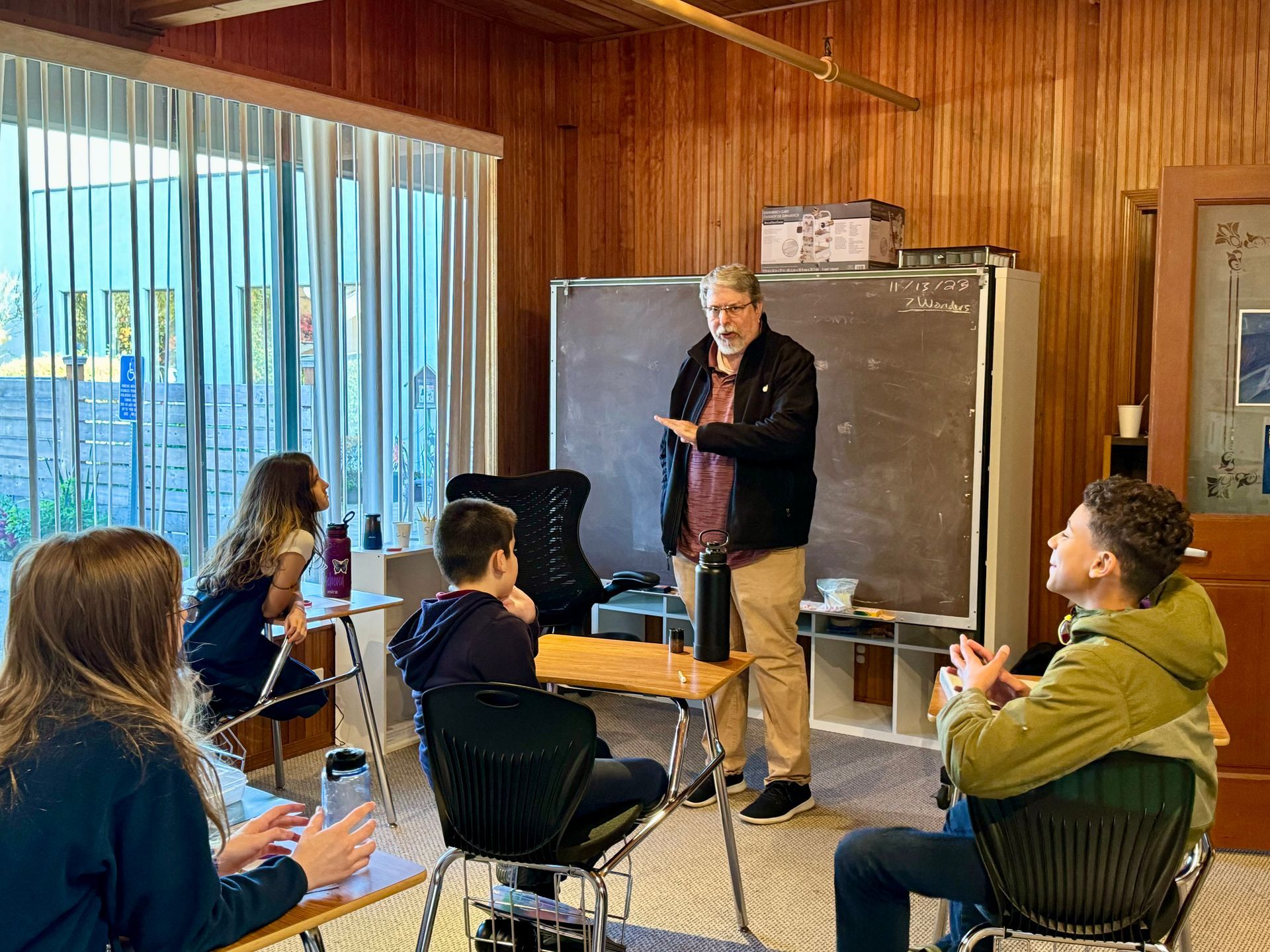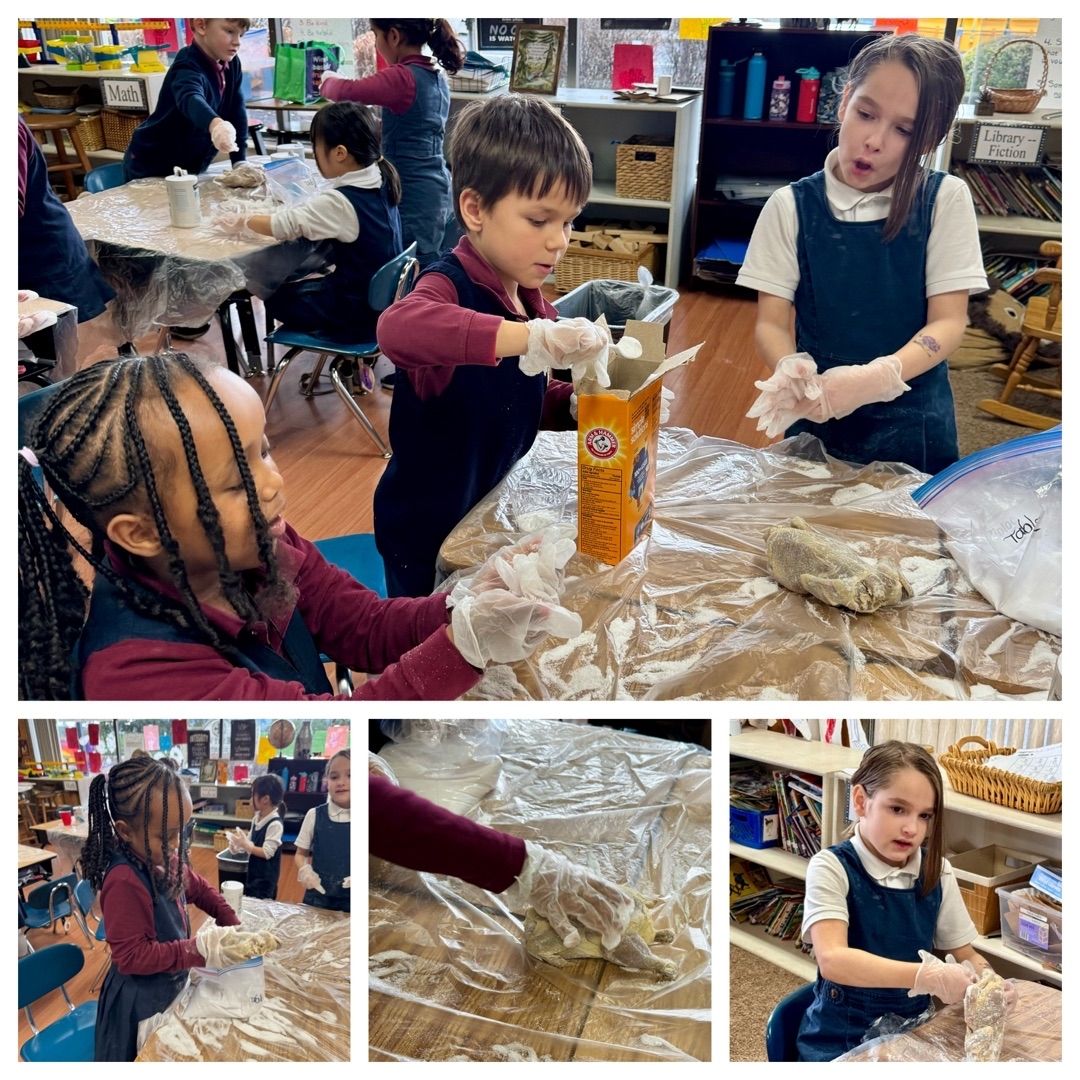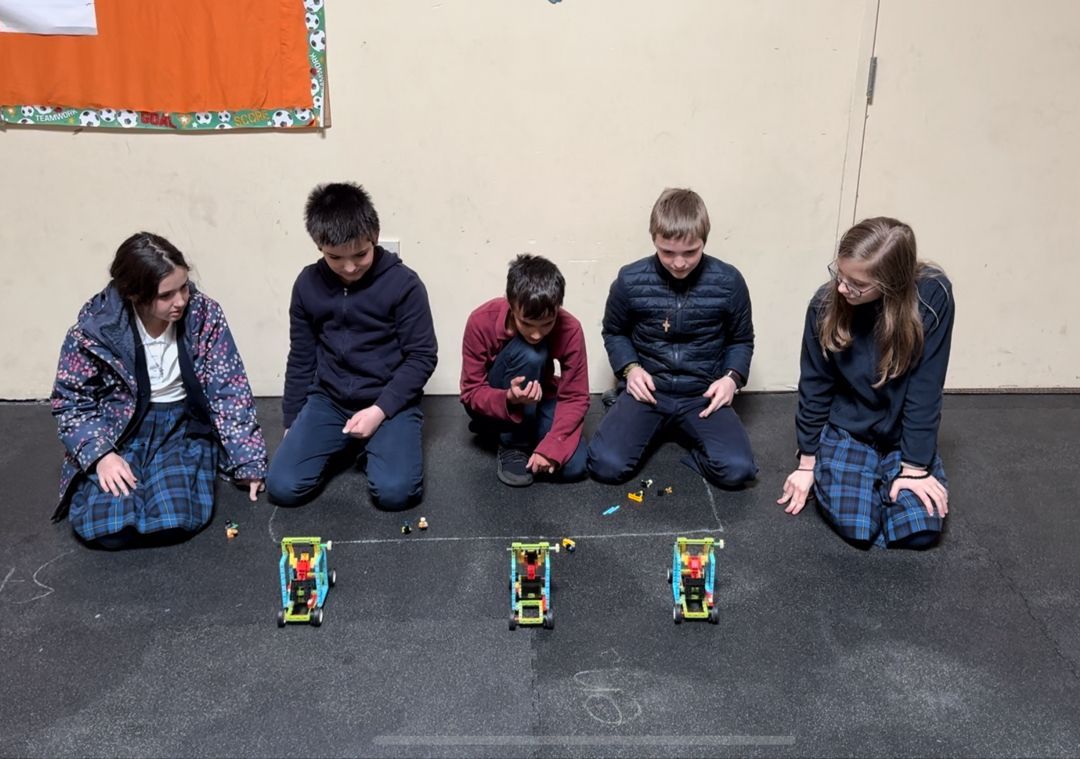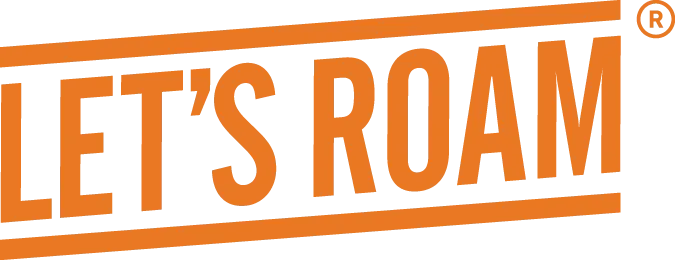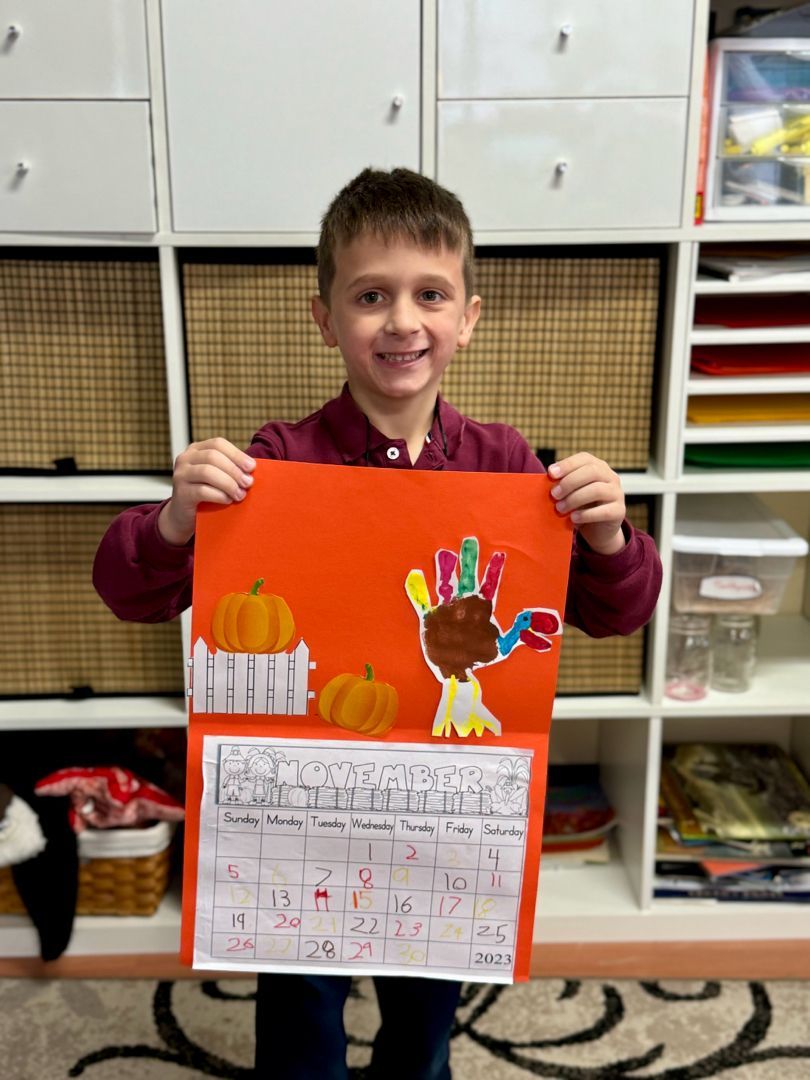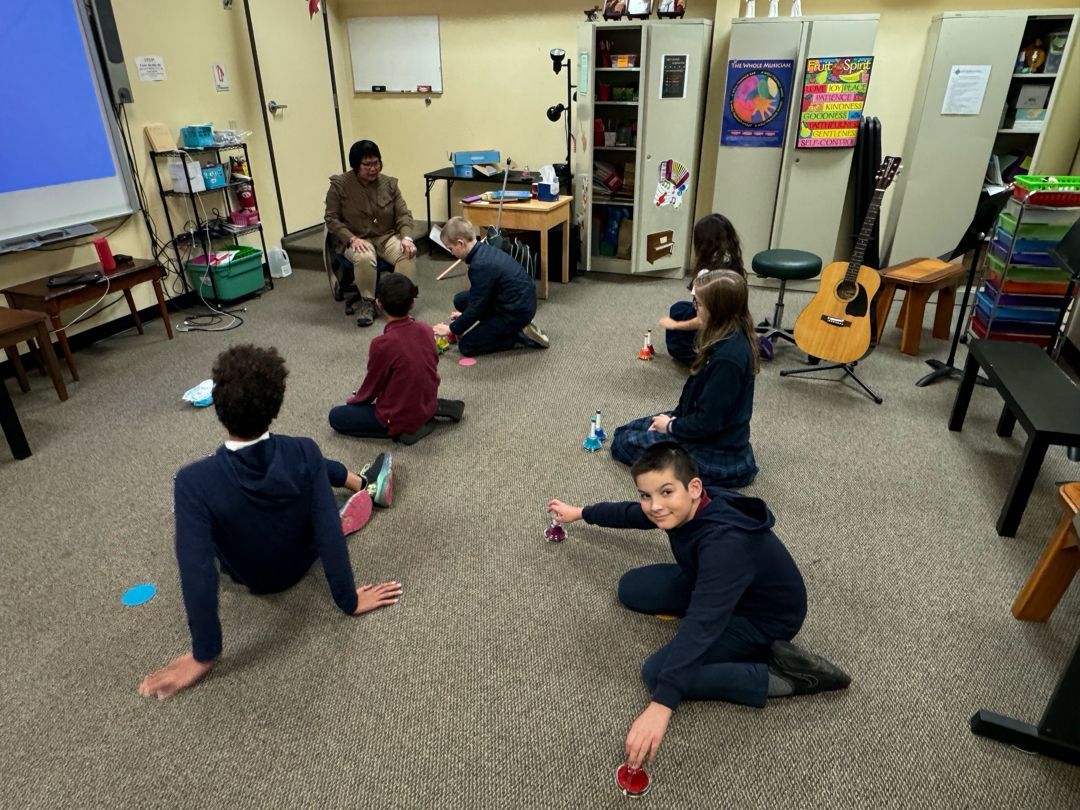By Christina Blankenstein
•
December 11, 2023
Despite our vacation time last week (I hope you had a great Thanksgiving!), we had a very full two weeks! We have worked on a project for the homeless, made apple turkeys, learned about Thanksgiving, continued learning about Egypt, added to our knowledge of fables and Mother Goose rhymes, and myriad other things! Every day brings so much that it is hard to explain it all without pages of text! (And, I'm sure no one wants that! :-) ) It does bring up a small thing. I absolutely want you to keep your child home if he or she is running a fever or is feeling very ill. This is important to your child's health, as well as to the health of every other child in the school and all the teachers! However, having said that, I do want to mention that we do a TON each and every day. Learning is happening by the minute, and--no matter how much I may want to do so--I cannot replicate all the discussions, projects, videos, photographs, books, and lectures that we do! So, when your child misses, he or she really does miss a lot, and it just can't be "made up" with the few worksheets that I may be able to send home. So, if you ever question: "Will my child be missing anything important when absent?" the answer is unequivocally "yes!" Now, of course, children--especially children at a school like this one where lots of learning happens all the time--will still do well even not knowing as much about papyrus, Jack Sprat, or how a (possible) earlier Egyptian queen similar to Hatshepsut has been discovered. And, they will get many of the math, grammar and reading concepts again. So, when necessary, please do keep your child home! But, I do want to be clear that we do a LOT of things every day, so, we definitely miss your child when he or she can't come. So, stay healthy out there! Language Arts We have continued our fable study. We learned a new fable: "The Clever Fox and the Vain Crow." We analyzed it to discuss personification, plot (beginning, middle and end), character(s), and setting. The students are really taking to heart some of the life lessons (morals) these stories teach! In addition, we have continued learning our Mother Goose rhymes, adding "Jack Be Nimble" to our growing repertoire. We practice using phonogram skills in the short Mother Goose rhymes to see how the English language works. If you haven't yet checked it out, the next phonogram video (#27 - #55) has been posted. Please have your child watch it as often as you can (once a day is great!) The hand motions and scripted way of saying the sounds will really help your child cement in the various sounds of the letter combinations. It doesn't take too long to watch and will really help with spelling and reading. The students are regularly taking comprehension quizzes where they practice reading passages and then answering questions about the passages in a set amount of time. They continue to practice their Timed ABC tests, and we have had one quiz over the various literary terms we have been studying. We read about Egyptian Queen Meret-Neith in our article today (and about the Indian holiday of Diwali in our last Friday article!) After reading, we brainstorm a good summary of the article as a class, and then we copy that summary for copywork time. In our Morning Work, we regularly practice our phonograms, Rigg's Spelling List #1 words, and various aspects of the English language such as syllables, plurals, and punctuation. We also learn a famous proverb or English saying daily and discuss what it means. We continue to do Daily 5 regularly, where students read, write, practice their word work, and do listening activities. We also did some poetry writing this week as we brainstormed ideas about Christmas, tied them to our 5 senses (see Science), and then filled in a framework with our own words to create some very cool Christmas poems! (Please check out our bulletin board which is still in progress!) My goal is to have a classroom that is rich with literacy, so that the students are thoroughly exposed to the English language, including beautiful words, big words, and literary and cultural English regularly, so that they may learn to love language and words, and grow into well-educated, life-long readers and learners! Math We are meeting both in large group (during Morning Meeting time and, occasionally, during actual math time), and in small groups (where I can target individual grade skills). All the children are working on number sense right now. For the younger students, that means recognizing and writing numbers, and understanding their quantities and composition. This is true of the older students as well, although they are working with numbers in the 100s. Students regularly take timed tests on adding numbers as well as on "number bonds" or combinations that make certain numbers. Whenever possible, the students use manipulatives. When you see bean papers? They actually are throwing real beans (colored red on one side) from real cups and recording the combinations they discover! When you see cubes? They are using real Unifex Cubes to created their own combinations of numbers. When you see drawings of Base-10 blocks (older students)? The students are actually touching and using real Base-10 blocks to practice the concepts. Actually touching and using real, concrete materials helps students of this age truly cement in what they are actually doing and what the numbers actually mean. We also regularly use abacuses, which allow the students to move beads to see real ideas "take flesh" in front of them. No one need be "bad at math." Given the right tools, everyone can learn it! History We continue to study Egypt and work on our new Egyptian lap books! Today, we learned about papyrus and how it was made. Then, we made (a reasonable facsimile) of own papyrus! We have learned about Egyptian social structure, clothing, and pyramids. In addition, we learned a great deal about Thanksgiving and the first Pilgrims. History is one of my personal favorite things to study, so we do a lot with photos, realia (mostly photos, but real things whenever possible), video, and storybooks. I try to make history as "hands-on" as possible, immersing the children in history by allowing them to participate in how people in the past did things. We will continue with our Egyptian study for awhile! Science Our class is learning as much as we can about light and how the world works! We explored translucent, transparent, and opaque last time, and this week, we moved into sending messages with light (and other means without words)! We talked about Morse Code, Semaphore, lighting beacon fires (Lord of the Rings anyone?), and, of course, sign language. The students made up their own secret messages to send, and then sent them with colored light (using flashlights and colored paper). Did their partner receive their message? Most certainly! We also talked about our 5 senses and discussed them in conjunction with our Christmas poem writing project! We will be moving into learning about our human bodies over the next few weeks and into the New Year! Helping the Homeless Our students participated in filling bags for the homeless this week. Students were allowed to take home a bag if they wanted. The idea is to keep the bag in the car, and, when you see someone in need on the street, you give them the bag! We want our students to learn to give back and to help others. I plan to have students make Christmas cards for folks in care facilities who don't get visits from family. We will be looking for other opportunities for the students to learn to be loving and kind! Faith We continued (and finished up) learning about Abraham. We read about his son, Isaac and how he got his wife Rebecca. Recently, we read and discussed the story of Esau and Jacob. The children were amazed that one brother would grow to hate another, and were surprised at how much this reminded them of Cain and Abel! They are waiting on pins and needles to find out if Esau ever forgives his brother Jacob. Today, we read about Jacob being sent away back to Haran--ostensibly to find a wife (but really to keep safe from Esau!)--and we learned of Jacob's dream of the ladder to Heaven. The children are quite engaged in the stories of the Old Testament as we work through them tied to our history. We looked at maps of Mesopotamia and Ur (where Abraham originated), the land of Egypt (where Abraham went, and then the land of Canaan (where he finally settled). We found out that Haran was in Mesopotamia! This connection to history, and tying the stories to other subjects they are learning, makes it all more real to the students, and they are truly excited to hear the next thing that happens! Art Students worked on creating 3D animals from paper bags this week! There are so many techniques they are learning! Music Mary Northend continued working on the various songs that your children will be singing for the Christmas performance! I hope you're practicing at home! :-) Closing Last Monday, we had a celebration with our stuffies! The students had worked as a team on clean-up and transitions, and earned a group celebration. We brought our stuffed animals and we watched the classic cartoon "How the Grinch Stole Christmas" and ate a few Oreo Cookies! It was a lot of fun! Progress Reports came out today. They are here on Brightwheel. Remember, that there are two main reasons for progress reports: 1) to communicate to you accurately where your child is presently, and 2) to give us benchmarks for their growth! Please don't concentrate on grades with your child, but rather on how much they are learning, where they are growing, and where they can set goals to get even better! If you have questions about your child's progress report, or about anything they are doing in the classroom, please don't hesitate to ask. I am here because I want to help you rear up your children to be the best possible version of themselves. So, our work as a team is very important! Next week will be interesting due to all the practices for the Christmas performance. It also means that I will not be able to stay late to write a newsletter. I will either find another day to do it, or it will be combined in the following week. May all you do this weekend and into next be blessed!
